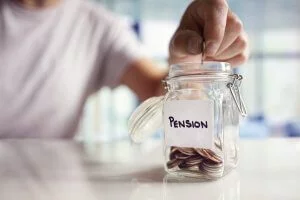Breadwinner or homemaker in divorce. Does it matter?

Contact
Table of Contents
Breadwinner vs Housewife Divorce Rights
When it comes to deciding how wealth is split in a divorce, English courts do not discriminate based on your role within the family.
A Spanish court hit the headlines recently after it ordered a businessman to pay his ex-wife €205,000 – just over £182,000 – in recognition of her 25 years as a homemaker. The judge calculated the figure based on the annual minimum wage she would have received throughout the couple’s marriage.
Mrs Moral acted as a stay at home mum
In this case, the couple has entered into a separation of property agreement, similar to a prenuptial agreement, which specified that whatever each partner earned was theirs alone. Since Mrs Moral looked after the family and worked as a housewife during the couple’s marriage, and Mr Moral was the sole breadwinner, the agreement would have left Mrs Moral without access to the couple’s wealth after they split. The judge decided this would be financially abusive and ordered the record payout.
While the case was decided in Spain, it puts into sharp focus the issue of financial settlements in England. How are financial settlements determined here? And what happens to the financially weaker spouse who made sacrifices during the marriage, such as acting as a stay at home mum?
What is a housewife entitled to in a divorce?
Equality is the starting point for any financial settlement in England and Wales. This means that each party should receive a fair share (not necessarily equal) of matrimonial assets such as money, property, investments, pensions and business assets. If both parties earn a similar amount and make similar contributions during the marriage, the court will likely order an equal split.
In reality, however, it is rarely a 50-50 split. The court’s main aim is to achieve fairness and ensure that one party does not profit at the expense of the other due to their money-making abilities. When deciding what’s fair, the court will take into account things like:
- Length of the marriage
- Each party’s income and financial needs
- Standard of living during the marriage
- Time out of the workplace
- Age and earning capacity
- Any non-financial contribution made by either party, such as one partner staying at home for childcare.
Different rules apply to inherited wealth and pre-existing trust funds. In those cases, assets are much less likely to be divided equally.
Homemakers are the same as breadwinners in UK Divorce
When assessing each party’s contribution to the marriage, the court has made it clear that homemakers stand on equal footing with breadwinners. Stay-at-home parents may not contribute to the family’s bank account, but they do make an equal contribution to the welfare of the family, and as such as considered an equal contribution.
The result is that a stay-at-home spouse or financially weaker partner could be entitled to receive more of the other partner’s income or assets if this would make their settlement fairer. Often, the financially stronger party will be ordered to make ongoing spousal maintenance payments in order to meet the other party’s needs.
This approach is more generous towards the financially weaker party than many other jurisdictions, which make financial settlements based on financial contributions alone.
The court’s decision when settling a financial dispute will always depend on the individual case. For example, a 50-year-old woman who has not worked for the duration of her 30-year marriage may struggle to find a job and support herself financially. She might expect to receive a larger share of the matrimonial assets than a 25-year-old who earns a similar income to their spouse and could easily start again with a reasonable salary.
Final words
The recent case in Spain serves as an important reminder that financial settlements after a divorce should never be about money. It is important to consider all the contributions each partner has made, both financial and non-financial, and ensure that these are taken into account when deciding what’s fair. After all, a marriage is about two people working together – not one benefitting from the other’s sacrifices.
Also see:
Contact Osbornes Law
If you are interested in understanding your rights in a divorce, whether you’re the breadwinner or the homemaker, contact our financial settlement solicitors for advice. Call 020 7485 8811 or fill in the contact form below.
Share this article
Contact us today
Call us 020 7485 8811
Email us Send us an email and we’ll get back to you
Insights about Divorce Financial SettlementsVIEW ALL
- 4.7.2025
Standish Ruling: What Counts as Matrimonial Property
Supreme Court confirms only a valuable asset treated by parties as a matrimonial asset has been ‘matrimonialised’ The financial remedies...
Read more - 17.3.2025
Selling a House in Divorce
A guide to amicably selling a house during divorce One of the biggest issues in divorce is what happens to...
Read more - 24.2.2025
How Are Finances Divided On Divorce?
Avoiding Misconceptions: How Are Finances Divided On Divorce? The financial remedies team at Osbornes Law advises divorcing clients across London...
Read more - 21.2.2025
Protecting Business Privacy in Divorce Financial Proceedings
Business owners: protecting privacy of confidential information in financial proceedings on divorce We represent many business-owners in financial proceedings on...
Read more - 4.11.2024
Anglo-French Divorce: Jurisdiction Guide
Anglo-French Divorce: which jurisdiction is right for you? It has been a year since we launched our Anglo-French department in...
Read more - 29.10.2024
Economic Disadvantage in Divorce: Can You Be Compensated?
Giving Up High Earnings: Can A Party Be Compensated For Economic Disadvantage? In financial remedies cases, the fact that one...
Read more - 24.10.2024
Can a Declaration of Trust Stand in Matrimonial...
Matrimonial Homes: Can A Declaration Of Trust Of Beneficial Ownership Stand? Resolving issues relating to ownership of the former matrimonial...
Read more - 23.10.2024
When Abusive Behaviour Affects Divorce Financial Relief
When is Abusive Behaviour Relevant To Financial Relief on Divorce? Domestic violence and other abusive behaviours are a contributing factor...
Read more - 25.9.2024
What Happens to Savings & Investments in Divorce?
Divorce often raises important questions about the division of assets, particularly savings and investments. Understanding what happens to these financial...
Read more - 23.9.2024
International footballer fails to comply with financial disclosure
UD v TQ: The importance of complying with financial disclosure Recent divorce case involving an unnamed international footballer is a...
Read more - 20.9.2024
Pension Attachment Order: A guide
Pensions are quite often valuable assets in a marriage. In some cases, they can be worth more than the family...
Read more - 27.8.2024
Pension Sharing Orders
Pension Sharing in Divorce With so many things to consider when dividing up your finances during a divorce or dissolution...
Read more - 20.8.2024
What is pension offsetting?
In this article, we will explore the concept of pension offsetting and how it can play a crucial role in...
Read more - 12.8.2024
NA v LA [2024] EWFC 113: Judge Orders Non-Court Dispute...
Financial Claims: Judges Can Order Parties To Attempt Non-Court Dispute Resolution As was expected, the court has been quick to...
Read more - 1.8.2024
Standish v Standish: Court of Appeal Decision on...
Court of Appeal reduces wife’s divorce award by £20million Dealing with financial matters on divorce can be complex. And...
Read more - 1.8.2024
Matrimonial vs Non-Matrimonial Assets
Matrimonial vs Non-Matrimonial Assets in Divorce During a divorce, people often make the mistake of assuming that everything they own...
Read more - 1.8.2024
What is a Periodical Payments Order?
Periodical Payments Orders in Divorce Throughout the process of a divorce or when unmarried couples with children split up, numerous...
Read more - 1.8.2024
What is a Lump Sum Order?
A lump sum order is a crucial element of divorce settlements that can significantly impact the financial future of both...
Read more - 25.7.2024
What is a Property Adjustment Order?
A property adjustment order is a key legal mechanism used during a divorce to fairly divide property and assets between...
Read more - 14.6.2024
What Happens If You Have a Joint Mortgage...
Understanding whether you can keep a joint mortgage after divorce is crucial, especially if both parties are still liable for...
Read more - 10.6.2024
What is Financial Disclosure in Divorce?
Introduction to divorce financial disclosure A divorce ends your marriage but it doesn’t end your financial ties to your...
Read more - 7.6.2024
What is a Clean Break Order?
In this article, we will explore the concept of a clean break order, examining its advantages and disadvantages. We will...
Read more - 6.6.2024
Court reduces Wife’s award by £20 million
The biggest “Divorce Cut” in legal history Court of Appeal judges have just made history by reducing the divorce award...
Read more - 28.5.2024
Short-term marriage divorce settlements
A Marriage is a Marriage — Even if it’s short and childless When deciding who gets what in a divorce,...
Read more


























